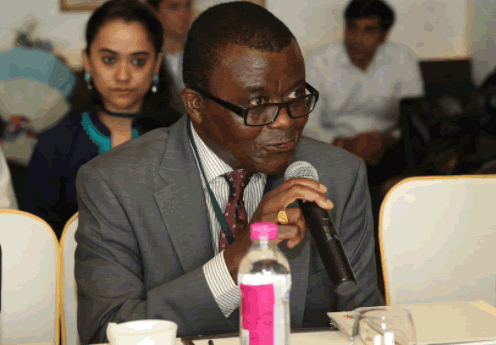Planting for food and jobs programme critical against hunger – Prof. Agyeman-Duah

Professor Bafour Agyeman-Duah, Chief Executive Officer (CEO) of the John Agyekum (JAK) Foundation has indicated that the government policy of ‘planting for food and jobs’ would be critical to the eradication of hunger and poverty.
He therefore called on the implementors to focus on growing more nutritional foods to ensure quality nutrition among citizens.
Professor Agyeman-Duah, was speaking in an interview with the Media in Koforidua, at the opening of a Regional workshop on the “zero hunger strategic review” under the JAK foundation and the World Food Programme prograamme on eradicating hunger in Ghana by 2030 in line with the Sustainable Development Goal (SDGs) two and three.
He explained that the zero hunger project in Ghana, was a collaboration between the World Food Programme (WFP) and the JAK foundation to eradicate hunger which comprised nutritional foods production and food safety and nutrition in Ghana by 2030.
He said the project as part of its implementation would look at what to do as a nation to address nutrition problems holistically and make recommendations to government as such.
The CEO, said eradicating of hunger and nutritional problems required, the input and efforts of all stakeholders and added that “this project is Ghana’s and its benefit would be to Ghanaians so therefore every stakeholder should be fully committed to the goals and objectives of this project”.
The workshop was attended by stakeholders in the project including the Ghana Education Service (GES), Ghana Health Service (GHS), the Ministry of Food and Agriculture (MOFA), Centre for Scientific and Industrial Research (CSIR), Ghana Statistical Service (GSS), National Development Planning Commission (NDPC) to review the findings of research conducted in the communities endemic in Hunger.
Experts from the Kwame Nkrumah University of Science Technology (KNUST), University for Development Studies (UDS) and the University of Ghana (UG) constituted the research team led by Dr Matilda Steiner-Asiedu, to dialogue with communities to research into the causes and effects of nutritional problems and hunger.
Dr Steiner-Asiedu, the lead researcher on the Zero hunger project, said the research was aimed at establishing the baseline of challenges and gaps in the national response to food and nutrition security and all forms of malnutrition and sought to double agricultural production and increase the outcomes of smallholder farmers.
She said the focus of the project would therefore look at quality as well as quantity to ensure that access to food would not be just any food but foods with high contents of nutrition to reduce child stunting and malnutrition in Ghana as well.
Source: GNA
